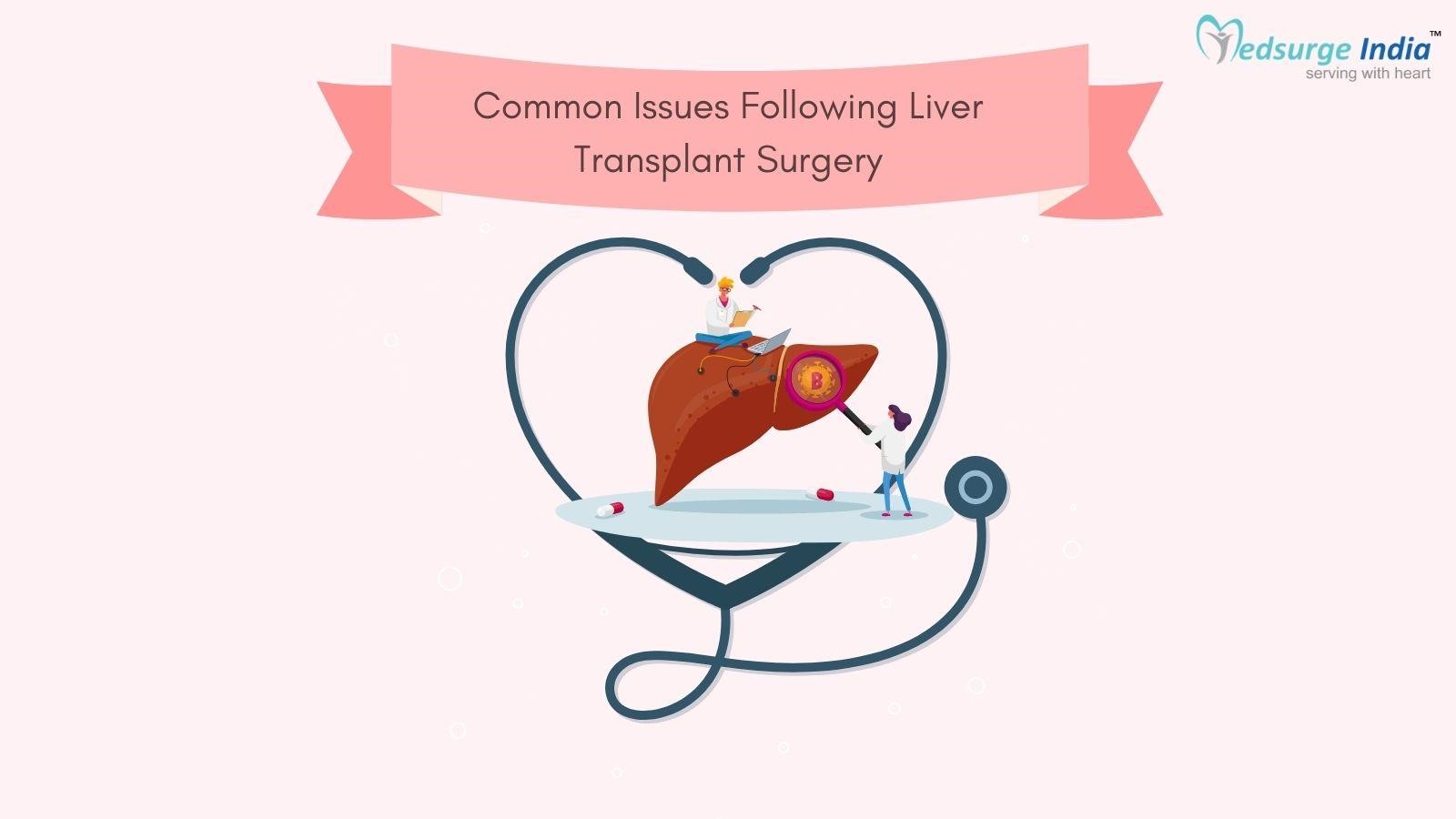
Common Issues Following Liver Transplant Surgery
Patients with end-stage liver disease have hope thanks to liver transplant surgery, which can save their lives. While it is considered a successful treatment option, there are several problems that can arise following the surgery.
The liver, the largest internal organ in the body, performs a variety of vital functions, including:
- By assisting with the processing of food, medication, and hormones
- The body’s ability to absorb fats, cholesterol, and fat-soluble vitamins is made easier by the generation of bile.
- By producing proteins that assist in blood clotting
- By cleansing the blood of poisons and bacteria in the human body
- By controlling immunological reactions and preventing infections
The prospect of a liver transplant is generally only considered as a treatment for those with unbearable difficulties brought on by end-stage chronic liver disease. Liver transplantation may also be a feasible choice for treatment in extremely rare circumstances where a previously healthy liver abruptly fails.
Why Liver Transplant is Performed?
This procedure is performed at some of the Best Liver Transplant Hospitals In India as a last alternative for people with advanced liver disease or liver failure. This procedure involves replacing a diseased or malfunctioning liver with a more healthy liver from a deceased or from a living donor. A liver transplant may be required in cases of disease such as chronic liver disease, acute liver failure, liver cancer, and certain genetic or metabolic disorders. It is a crucial treatment option for those whose liver function has deteriorated to the point where other treatments are no longer practical. The purpose and goal of a liver transplant is to enhance the quality of life and improve lifespan for those with liver disease.
Complications And Challenges After Liver Transplant
Common complications and challenges that patients may encounter after undergoing a liver transplant.
- Rejection: One of the main concerns after liver transplant surgery is the potential for organ rejection. Despite advancements in immunosuppressive medications, rejection can still occur. When the body’s immune system perceives the transplanted liver as foreign, it begins to harm it. To avoid rejection and guarantee the long-term viability of the transplant, regular testing and dosage modifications are required.
- Infection: After a liver transplant, patients are more liable to infections due to the immunosuppressive medications that are vital to prevent rejection. UTIs, skin infections, and respiratory infections are some of the most typical forms of infections after a liver transplant. Routine monitoring, good hygiene approaches, and prompt treatment of any infection are essential to prevent complications.
- Complications with Medications: Patients who have undergone liver transplant surgery are required to take multiple medications to suppress their immune system and prevent rejection. However, these drugs may also cause unwanted consequences like thinning bones, high cholesterol, and blood pressure. To successfully manage these side effects and avoid long-term consequences, close supervision by medical professionals is necessary.
- Postoperative Bleeding: Bleeding after liver transplant surgery is a potential complication that requires immediate medical attention. While the surgical team takes precautions to minimize bleeding during the procedure, it may still occur in some cases. Postoperative bleeding can manifest as abdominal pain, swelling, or sudden drop in blood pressure. To handle this issue and stop more issues, it is essential to discover the problem early and take action.
- Biliary Complications: After a liver transplant, biliary complications can arise, such as bile leakage or strictures. These complications can cause abdominal pain, jaundice, and fever. In order to resolve these problems and return to normal bile flow, interventional procedures or surgery may be required.
India is home to some of the most renowned transplant hospitals worldwide, equipped with advanced facilities and staffed by highly skilled doctors and surgeons who excel in performing successful live transplants. Patients from across the globe flock to India to avail themselves of these superior benefits provided by Indian hospitals. The hospitals are widely recognized for their exceptional care, and their liver transplant procedures have a notably high success rate and are on par with other well-advanced hospitals in the world. Not only that, the price of liver transplant cost in India is cheaper.

Risk Factors for Post-Surgery Liver Problems
Certain factors may increase the likelihood of developing liver problems after surgery, including
- Preexisting liver conditions such as cirrhosis or fatty liver disease.
- Prolonged surgeries or those involving complex procedures.
- Poor nutrition or underlying chronic illnesses.
- Infection on surgical sites in the body.
Prevention and Management
To minimize the risk of post-surgery liver problems, healthcare professionals may take several preventive measures, including:
- Conduct thorough pre-operative assessments, including liver function tests.
- Optimizing the patient’s general health before surgery.
- Administering antibiotics prophylactically when necessary.
- Observing the patients closely during the post-operative period.
- Educating patients about proper wound care and hygiene.
Recovery and Rehabilitation
- The likelihood of recovering from post-operative liver issues depends on the condition’s severity and personal circumstances.
- A full recovery will depend on following medical recommendations by your healthcare and maintaining a healthy lifestyle.
- Regular follow-up appointments with medical professionals are essential to track development and resolve any issues.
Bottom Line
Liver transplant surgery is a complex procedure that offers a new lease on life for patients with end-stage liver disease. The various issues that can arise following the surgery must be understood, though. To properly manage these issues and guarantee the long-term success of the transplant, regular monitoring, adherence to drug regimens, and frequent communication with medical personnel are essential. By being informed and well-proactive, patients can navigate the challenges that may arise after liver transplant surgery and continue to live a more healthy and fulfilling life.


